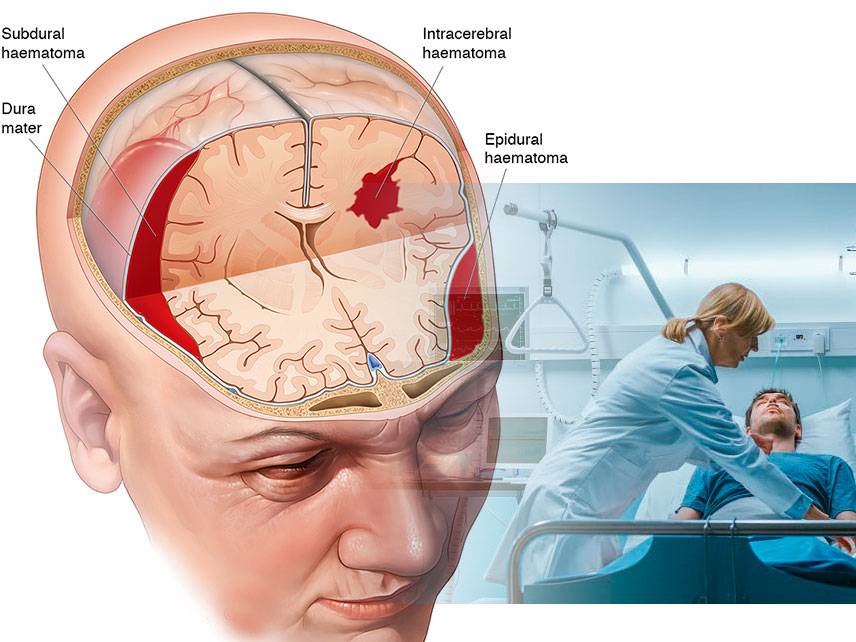Brain injury is a serious and life-altering condition that can affect the way a person thinks, feels, and behaves. In many cases, it can lead to long-term physical and mental health problems. According to the Centers for Disease Control and Prevention, nearly 2.87 million people in the United States sustain a traumatic brain injury every year. It is important to understand the symptoms, types, and treatment options for a brain injury in order to properly recover. This article will provide a guide to recovering from a brain injury.
What are 3 symptoms of a brain injury?
The three most common symptoms of a brain injury include memory loss, confusion, and difficulty concentrating. Brain injuries can also cause physical symptoms such as headaches, dizziness, blurred vision, and nausea. In some cases, a person may not experience any symptoms at all.
What are the four types of brain injuries?
There are four types of brain injuries: traumatic brain injuries, acquired brain injuries, anoxic brain injuries, and traumatic brain injuries due to a lack of oxygen. Traumatic brain injuries are caused by a direct blow to the head. Acquired brain injuries result from a stroke, tumor, or a head injury that occurs over a period of time. Anoxic brain injuries occur when the brain is deprived of oxygen. Finally, traumatic brain injuries due to a lack of oxygen can occur when the brain is deprived of oxygen for a short period of time.
What is a Level 1 brain injury?
A Level 1 brain injury is the least severe. It is characterized by a brief loss of consciousness, confusion, and disorientation that lasts less than 30 minutes. Most people with a Level 1 brain injury will make a full recovery without any long-term effects.
What are the most common brain injuries?
The most common brain injuries are concussions, contusions, and diffuse axonal injuries. Concussions are caused by a blow to the head that may or may not cause a loss of consciousness. Contusions occur when the brain is bruised due to a direct blow to the head. Diffuse axonal injuries occur when the brain is shaken in multiple directions due to a sudden deceleration or acceleration.
What happens if a person has brain injury?
If a person has a brain injury, they should seek medical attention immediately. A doctor will assess the injury and provide a diagnosis. If a brain injury is suspected, a CT scan or MRI will be used to confirm the diagnosis. Once the diagnosis is confirmed, the doctor will develop a treatment plan, which may include medication, physical therapy, occupational therapy, and/or speech therapy.
Can the brain recover from brain injury?
The brain has the ability to heal itself after a brain injury, but the extent of the recovery depends on the severity of the injury. In some cases, the brain may not be able to recover completely, but with proper treatment, a person can still lead a productive life.
What is the most serious type of brain injury?
The most serious type of brain injury is a diffuse axonal injury. This type of injury occurs when the brain is shaken in multiple directions due to a sudden deceleration or acceleration, such as in a car accident. It can cause permanent disability, coma, or even death.
How long can you live with a brain injury?
The amount of time a person can live with a brain injury depends on the severity of the injury. In some cases, a person can live a normal life with limited effects of the injury. In more severe cases, the effects can be long-term and even life-threatening.
When is a brain injury serious?
A brain injury is considered serious if it results in a loss of consciousness, confusion, disorientation, memory loss, physical symptoms such as headaches, dizziness, blurred vision, and nausea. If any of these symptoms are present, it is important to seek medical attention immediately.
Brain injury is a serious and life-altering condition that can have a long-term impact on a person’s physical and mental health. It is important to understand the symptoms, types, and treatment options for a brain injury in order to properly recover. This article has provided a guide to recovering from a brain injury. With the right medical care and treatment, it is possible to make a full recovery from a brain injury.





